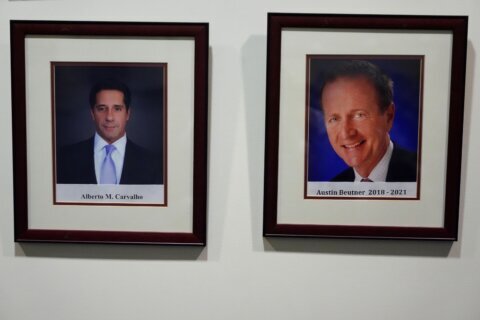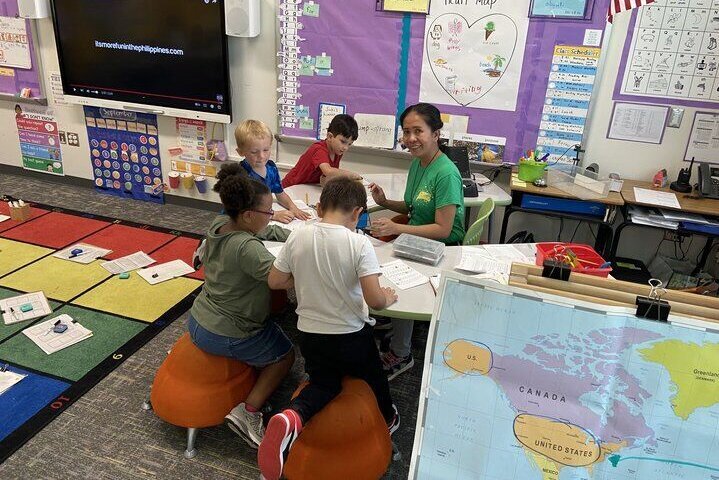
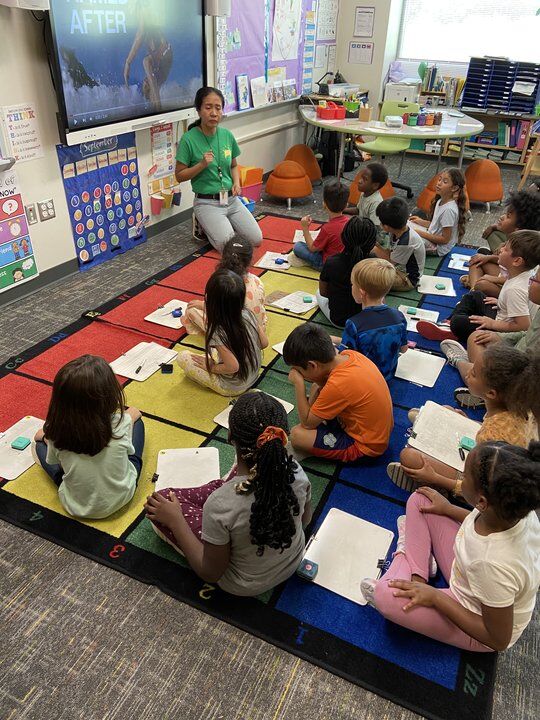
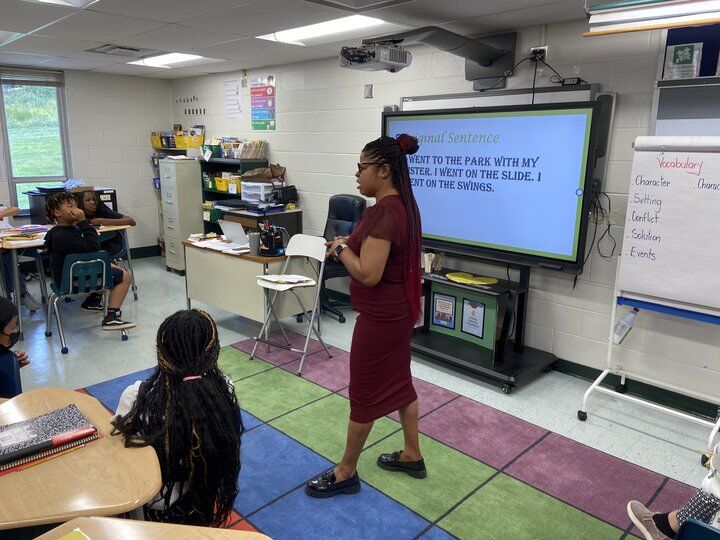
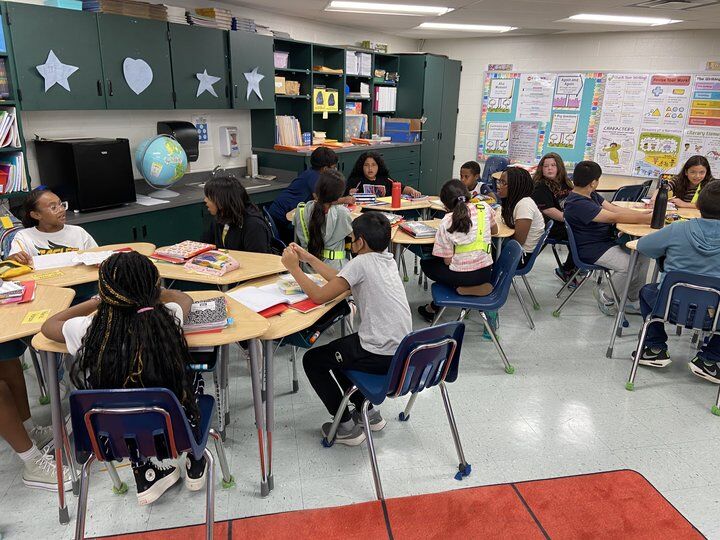
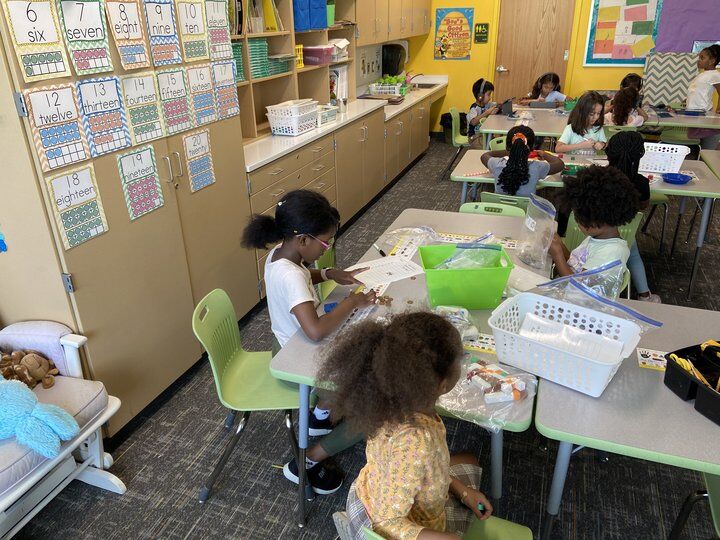
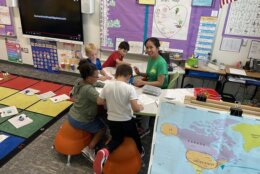
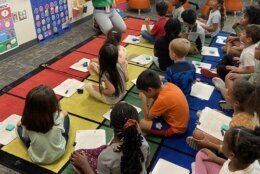
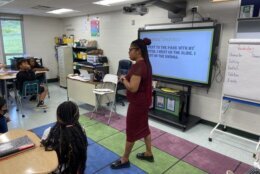
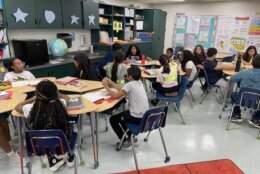
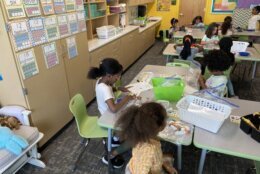
Some fifth graders at Minnieville Elementary School in Woodbridge, Virginia, were awe-struck Wednesday afternoon, as their teacher Sidonie Frater-Gayle broke out into song at the start of class.
Frater-Gayle, who’s from Jamaica, told her students that the day’s lesson would involve using specific language and vocabulary to add voice to their writing. On a slide in the front of the room, the five steps of the writing process were detailed.
The slide was called “Writing Process Dub Poem,” and students giggled at what came next.
“The writing process, the writing process,” Frater-Gayle started to sing, to the melody of a Jamaican tune. “We have to revise our writing to make it right.”
As she concluded, Frater-Gayle explained that music was an important part of her culture. She warned the students about starting sentences with conjunctions, and then explained the task at hand.
Often, Frater-Gayle said, she tries to incorporate song, dance and poems into her lessons.
“And they tend to remember,” she said. “They sing it in the evenings, they want me to sing it over and over again.”
Frater-Gayle is in her second year of teaching in Prince William County, but she’s been a teacher for the last two decades. She’s one of seven teachers at Minnieville involved with the Participate Learning program, an international teacher exchange opportunity that enables teachers abroad to teach in the U.S. for up to five years.
There are over 250 Participate Learning teachers in Virginia’s second-largest school system, a spokesperson said, and 102 new teachers from the program this year. Many of them come from Jamaica, like Frater-Gayle did, and teach students aspects of cultures they otherwise may not learn about.
It took a leap of faith to apply to the program, Frater-Gayle said, but she plans to bring certain strategies, such as the focus on reading comprehension, back to her colleagues in Jamaica when she returns.
“I try to give them a piece of my culture, because it’s very important to have them experience the different cultures,” Frater-Gayle said. “Some of them may never get to leave their country.”
Meanwhile, down the hallway, Honey Susmiran’s students watched a video about the Philippines. After the short clip ended, she asked the class to use different words to describe the country where she taught for nine years, and then to come up with a few questions about it.
One student asked if they had ice cream there.
Susmiran learned about Participate Learning on Facebook, and since arriving at Minnieville has noticed some differences in America’s approach to education. For one, she said her students get to do more hands-on activities, and schools are on a stricter schedule.
“When we say we start at eight [a.m.] in our country, we start at 8:30 or nine (or) until everyone is there,” she said.
Every month, Susmiran said, she introduces her students to something different about the Philippines. In her classroom’s cultural corner, she has a game called Sungka.
Principal Deborah Ellis, meanwhile, said having teachers with different backgrounds helps show students “that we live in a global society.”
“Someone said, ‘It’s like going on a field trip without really going on a field trip, without having to leave the classroom, you get a field trip right there every day,’” Ellis said.



